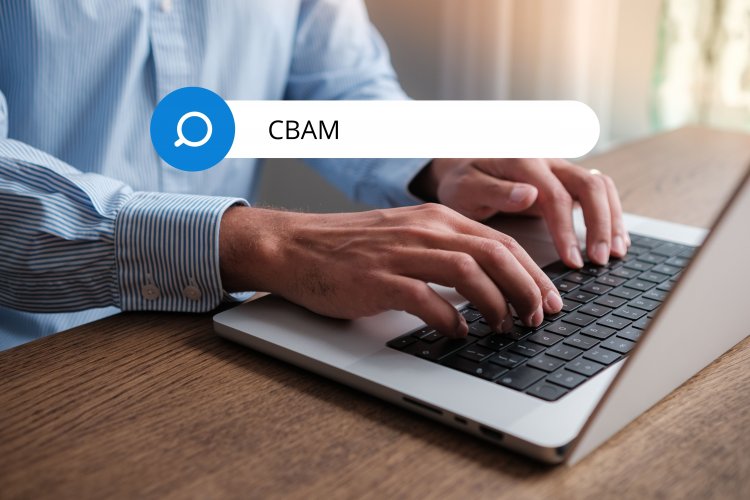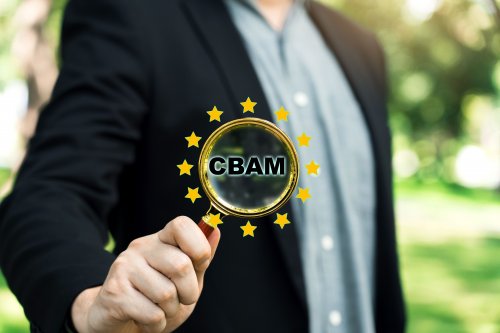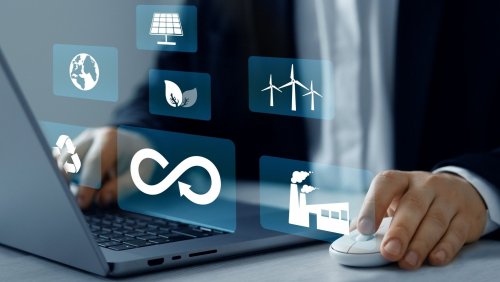European manufacturers are accelerating the pace of decarbonization and reviewing their list of suppliers to be as prepared as possible for the introduction of the Carbon Border Adjustment Mechanism (CBAM).
Euroactiv writes about this.
Why CBAM is being introduced
The purpose of CBAM is to prevent carbon leakage – a scenario where companies move production to countries with more lenient environmental legislation in order to avoid strict climate policies. According to the idea of European legislators, imported goods will be subject to the same carbon pricing that EU companies face under the EU Emissions Trading Scheme (ETS).
In other words, CBAM is a way to achieve strict EU climate goals while maintaining the competitiveness of European businesses in the global market.
How does it work
Importers will be forced to buy carbon certificates based on the carbon content of their products. This effectively equalizes the cost of carbon emissions between domestic and foreign goods. This will initially target sectors with a high risk of carbon leakage such as steel, cement, ceramics, aluminum and fertilisers, but over time CBAM plans to expand to a wider range of products.
Since October 2023, there has been a transition period for the implementation of this mechanism – a border tax on the import of carbon-intensive goods. In 2026, its full implementation will begin, that is, it will be necessary to pay an import tax.
Vice-President of the European Commission Valdis Dombrovskis generally called CBAM a key element of EU climate policy.
European manufacturers are already actively preparing for the full implementation of the cross-border carbon adjustment mechanism. Here are the steps they take:
1. Detailed analysis of the features of using CBAM
European companies are now carefully studying the features of the cross-border carbon adjustment mechanism. Many have invested in legal and consulting services to understand the regulatory framework and its implications for their supplies.
The metals sector is particularly impacted by CBAM as precursor materials for 6 industries currently covered by the cross-border carbon adjustment mechanism are included in its scope, and companies in the metals sector are already adapting to the new requirements.
“Companies importing ferronickel into the EU will have to report their embedded emissions from the end of January 2024, and from 2026 they will have to buy CBAM certificates,” says Pablo Rodriguez Dominguez, sustainability specialist at the Nickel Institute.
2. Cost reduction
To reduce the costs associated with CBAM, many firms are making efforts towards decarbonization. They can minimize the number of carbon certificates required if they reduce their own carbon emissions.
Companies are investing in renewable energy sources (RES), increasing efficiency and exploring innovative technologies to reduce their carbon footprint.
This proactive approach not only reduces the potential financial burden under CBAM, but is also consistent with wider EU climate goals. It should be noted that for the metallurgical sector this requires quite large investments.
"Calculating embedded emissions is not a simple task and requires multiple data sources that companies may not have at hand. It is also very different from other current calculations carried out in the greenhouse gas industry, such as the EU Battery Regulation or reporting to ISO and Greenhouse Gas Protocol," says Rodriguez Dominguez.
CBAM also requires companies to create and implement new business processes to manage CBAM reporting, he said, “including assigning new roles and responsibilities to staff.”
3. Reconsidering supply chains and increasing the scale of cooperation
With the 2026 deadline for full implementation approaching, companies are beginning processes to re-evaluate supply chains and collaborate on tracking and traceability. They consider sourcing materials and products from regions with strict climate standards or sustainable practices.
These changes are not only about meeting CBAM requirements, but also about meeting the needs of increasingly environmentally conscious consumers.
European manufacturers are also expanding cooperation with suppliers to improve transparency of emissions data.
“Beyond the organizational and administrative aspects, there are several other issues that need to be addressed. For example, the disclosure of confidential business information through CBAM is a topic that remains a challenge for companies,” says Rodriguez Dominguez.
Until 2026, companies will need to invest in data management systems to closely monitor emissions. Accurate reporting will be critical as firms will be required to provide detailed information on the carbon content of imported goods before official implementation.
Many companies are now investing in new innovative methods to track their carbon footprint.
What risks do experts see?
1. If CBAM does not work as planned, reduce emissions and prevent carbon leakage, it will put European companies at an even greater disadvantage.
2. CBAM could hinder the development of materials needed for the energy transition.
Rodriguez Dominguez gives the example of nickel and nickel-containing stainless steels, which are at the beginning of many critical value chains needed to achieve the energy transition.
"There is global competition for raw materials. CBAM could affect the availability of these raw materials for EU value chains," he said.
3. Since the CBAM only covers the extraction of raw materials, but not the technologies containing those raw materials, there is a high risk that processed products not covered by the CBAM will be imported, affecting the competitiveness of EU value chains, experts say.
Euroactiv recognizes that CBAM is an important turning point in EU climate policy. If it works as intended, it could protect European companies from carbon leakage. But for the mechanism to work effectively, companies will need to proactively adapt to the new rules.
In July, EcoPolitics reported that the US Congress contributed carbon bill following the example of the European CBAM. At the same time we reported that China accelerates transition to green steel as CBAM advances.





